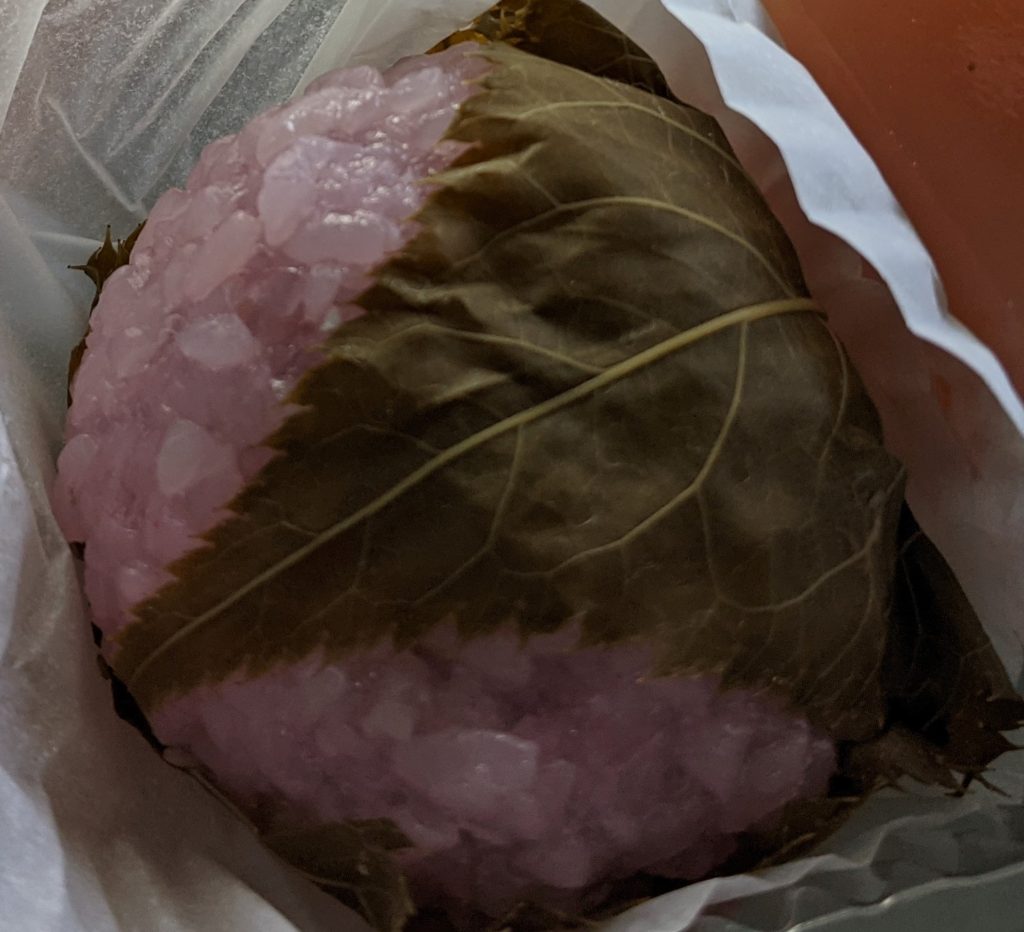This is an English translation of an article to appear in Nikkan San on April 4, 2021. It is a part of bi-weekly my column, “The Way of the Pianist.”
To many Japanese expats, photos of the beautiful cherry blossoms from Japan are bittersweet this year. The national emergency declaration has now been lifted as of March 22nd within Japan. However, Japanese government’s travel regulations remain strict. I must abandon my summer concert tour there again, following last year when I cancelled my trip for the first time since 2001.

sakura-mochi @fugetsudo
But because the pandemic makes traveling home more difficult, we cherish those things that helps us connect to our sense of home more. Last month, someone gifted me sakura-mochi from Fugetsudo in Little Tokyo. Wrapped in fragrant salted cherry leaves, the pink grains of sticky rice give a contrasting texture to the sweet red bean paste inside. The treat in my mouth brought me back to Japan for a split second.
Yesterday, an Indian family shared their homemade dal and chick pea curry with us, carrying them in ice cream containers. They, too, will not be returning home for another while. Eating their food, I felt a kinship to my siblings from another land.
There are some Americans who put us all in a heartless category of the “others.” Many of us have been in this country for decades, if not for generations, but a trauma like 9.11 or senseless comments like “kung flu” and “China virus” can lead to finger-pointing, name-calling and eventually to violence against us, despite our citizenships. But for someone like me, it is also a relief that the issue of racism against the AAPI community is finally getting attention and media coverage. Asian-American Pacific Islander as a coalition can affect election results. This will empower us with a louder voice. And the spirit of diversity, equity and inclusion is now promoted and prominent. It is time for us, the historically marginalized, to assert our views and our rights in this country, built on the ideal of democracy.
I have been practicing all twenty-four Chopin Etudes, as well as the twenty-four Preludes and Fugues in J.S. Bach’s Well-Tempered Clavier Book I. Simply put, Chopin is a physical challenge, and Bach mental. Working on technical and mental difficulties at the piano everyday, I gain perspective and insights into the challenges we are facing in this world.
The most important thing is, easy things are also easy to take for granted. Because complications require work, one becomes more committed. Because something poses a challenge, we put our whole body and soul to focus on it. Because difficulty tests us, we recognize our love for our lives, and for each other.